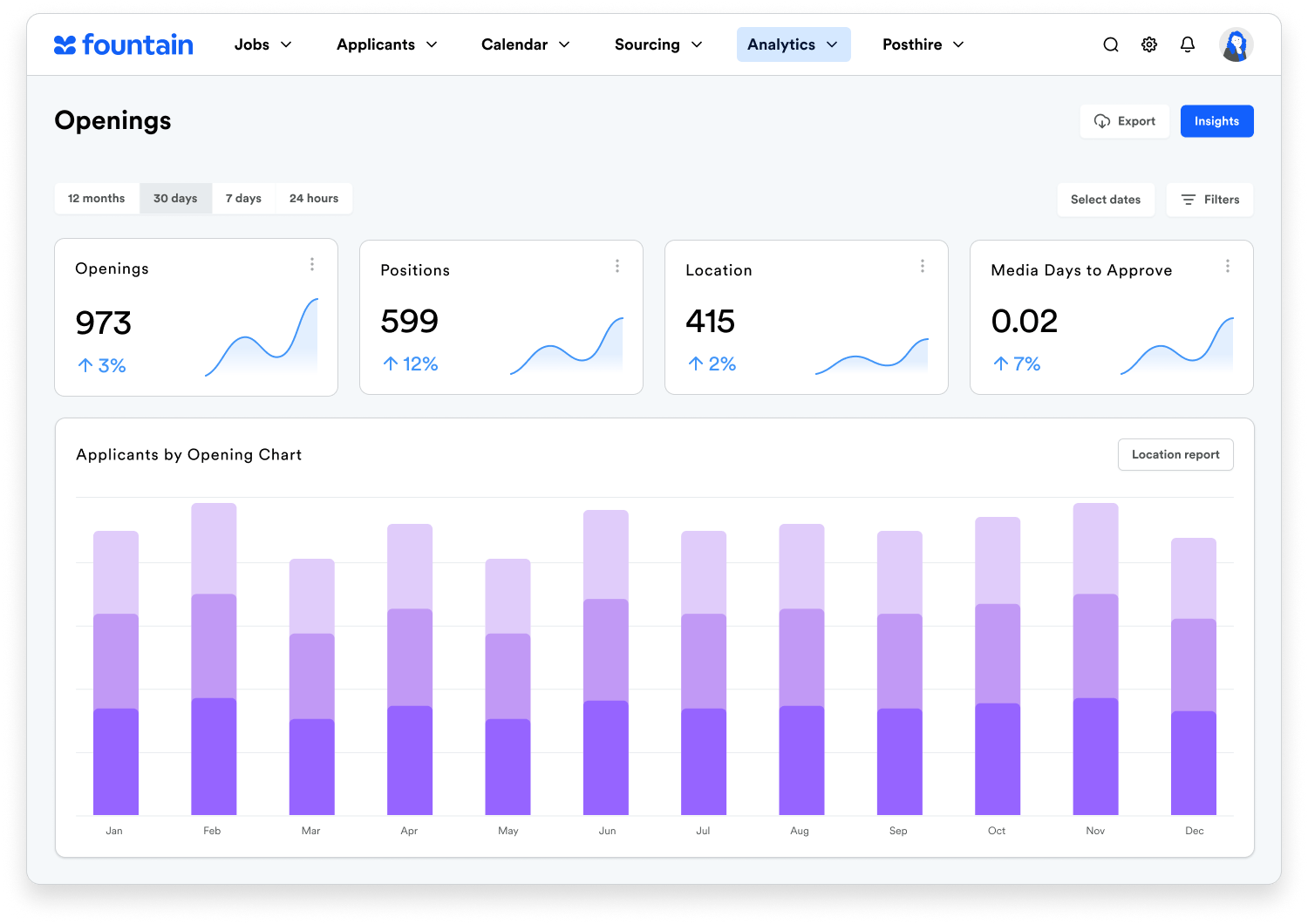What is a hiring manager?
What is a hiring manager? The term “hiring manager” may have different meanings.
For some organizations, the hiring manager is oftentimes the individual who will ultimately be the direct manager of the new hire. In other words, the new hire will be reporting to the hiring manager once they’ve accepted the job offer and started their new employment.
For others, however, the hiring manager is the person that does all the hiring for the whole organization. They may also go by the title hiring manager or assistant, recruiter, recruitment manager or specialist, talent acquisition manager or specialist. For our purposes, this the job role we are discussing.
How to be a hiring manager: Expectations vs Reality
Hiring managers have always been asked to do more with less. When deadlines and expectations for hiring top talent become more demanding, companies rely on hiring managers to get it done one way or another.
The art of hiring, however, has changed. Candidate expectations have changed and it has left hiring managers scrambling to keep up. Today’s workers are looking for companies that can hire quickly and make the application process easy and convenient for them. As a result, the companies that can keep up with their growing demand are able to staff faster than their competitors.
The other result of this is that recruiters and hiring managers who are still relying on traditional hiring tactics are struggling, not able to meet goals and growing more and more frustrated. Hiring manager satisfaction can only be achieved through improved hiring. They need to empower themselves with the tools they need in order to meet the demands of today’s job market. This also means that they need to educate their own organization in what’s needed to meet goals. If a company needs to scale suddenly, it is unreasonable to expect a sudden jump in hires without an investment in HR operations. But this means HR needs to drive this awareness and ask for the tools they need in order to provide results.
So what makes a successful hiring manager? We broke it down into three criteria: 1) they understand and take ownership of their role, 2) they embrace the traits that drive them, and 3) they embrace technology that makes them efficient so they are working smarter instead of harder.

Hiring Manager Duties
A hiring manager’s duties are critical in the hiring process and they are typically responsible for:
- Identifying the staffing requirement for a replacement or new open position.
- Getting approval from the department heads for open job requisitions.
- Writing a job description that clearly communicates the role and effectively attracts the best candidates. This job description is used by the recruiter (if there is a recruiter working with the hiring manager) for assessing the skills and qualifications of applicants during their job search.
- Defining roles and responsibilities based on the team and company needs along with setting expectations for the interview process.
- Acting as the primary interviewer during the job interview process. They may do the initial phone screenings.
- Communicating new job opportunities internally, within departments, or company-wide. They may request employee referrals from peers and teams.
- Driving the final hiring decision by gathering feedback from all stakeholders.
- Notifying appropriate parties if a position is to be withdrawn.
Traits needed to be a hiring manager
Whether you are a hiring manager, recruiter or go by another title, the skillset and traits necessary to be truly successful boil down to a few key points.
Become a great hiring manager by being a team player
Successful hiring managers make a conscious effort to collaborate with all parties involved. This includes working with department heads, recruiters and executives. They are similar to project managers in that they see and manage the hiring process from end to end.
See the big picture to be a hiring manager
Instead of just scanning resumes and cover letters for keywords, good hiring managers are able to gain some valuable insight into the candidate’s experience and skillset. They can easily evaluate potential, passion and professionalism. Sometimes, they interview certain candidates that others wouldn’t because to find that diamond in the rough.
Become a great hiring manager by acting urgently
Great hiring managers don’t procrastinate. As soon as they establish a connection with a qualified candidate, and begin the screening process. This proactive approach is carried throughout the hiring process which is why they tend to be so successful meeting hiring goals.
Be able to measure their success and report to the company
One of the most important hiring manager duties is being able to track all the activities going on and clearly communicating these findings. The company makes budgeting decisions for hiring based on these reports. So without a full and accurate view of the hiring funnel, important budgeting and business decisions can be affected.
Know where your best applicants are coming from
Since a large part of budgeting goes into sourcing, having an understanding of which channels your most qualified candidates are applying from will help teams make sure they designate budget for these channels.
Determine your key metrics
Successful hiring managers know that there are fundamental metrics they need to keep track of at all times in order to gauge the health of their hiring funnel. Some of the basic ones include time to hire, cost of hire, and turnover rate.
Calculating your turnover rate can tell you more than your think
Understand your hiring bottlenecks
The most successful hiring managers not only track metrics and engage candidates, but they gather actionable intelligence and can make recommendations on improving the hiring process. For example, if they notice that it’s taking longer than expected to schedule interviews, they may recommend using a better way of communicating with candidates to speed this process up (more on this below).

The most successful hiring managers not only track metrics and engage candidates, but they gather actionable intelligence and can make recommendations on improving the hiring process.
How recruiters are empowering themselves
Using tools at every stage of the hiring process. Particularly the ones save time by cutting out manual processes increase hiring managers’ time and overall job satisfaction.
Posting openings to job boards smarter
Large companies may have a big budget for sourcing candidates through a recruiting agency or large in-house recruiting team. For most small businesses, however, hiring managers rely on posting job openings on multiple job boards. This may be a combination of both free and paid job boards with guesswork guiding the recruiting process.
Recommendation: Instead of leaving sourcing up to chance, hiring managers can take advantage of simple tools like Fountain’s Boost feature. Through Fountain, hiring managers enter in their sourcing budget and the Boost feature uses artificial intelligence to distribute the money across the most relevant job boards and ensure the most qualified applicants are reached.
Scheduling interviews with less friction
Scheduling meetings and interviews with candidates is notoriously time-consuming and one of the hiring managers duties. On average, it can take a recruiter 2-3 weeks to schedule an interview with a candidate. This is due to both the high volume of resumes and applications they need to get through. It is also a result of relying on email and phone calls to communicate with qualified applicants who are likely applying to multiple jobs.
Recommendation: Using SMS messaging is the future of recruiting. For some, the idea of a hiring manager communicating with a candidate through text may seem creepy. The truth is, however, that the rise of mobile usage has made SMS messaging an increasingly accepted mode of communication between job seekers and employers. In fact, a study has shown that SMS has eight times the response rate of email! While finding new talent may seem like a numbers game or pure luck, SMS messaging offers a major competitive edge for employers both large and small.
Managing all their applicants in one placeAs HR professionals have seen the introduction of more and more technology into their field, there are now a multitude of tools to choose from. Applicant Tracking Systems (ATSs), for example, are a widely accepted way for managing candidates throughout the hiring process. The problem with ATSs, however, is that as more new tools come out, they are not compatible with these older technologies. It results in hiring managers having to log into separate systems in order to perform tasks. It also doesn’t provide one, singular view into the hiring funnel.
Recommendation: Instead of relying on multiple tools that are not interconnected, look for one tool that can manage all the same tasks or at least integrate all your existing tools into one place. The recruiting agency, Turas Group, for example, solved this very challenge by using Fountain to merge all their separate ATSs into one, unified dashboard.
The way in which companies hire has fundamentally changed and the hiring manager who are leading the charge in successful hiring are the ones that are embracing technology, able to react quickly and be nimble. Hiring managers should let their hiring tools determine their success, rather they should choose the tools that best meet their needs, save them time and increase their efficiency, making them the hiring rockstars they are.

